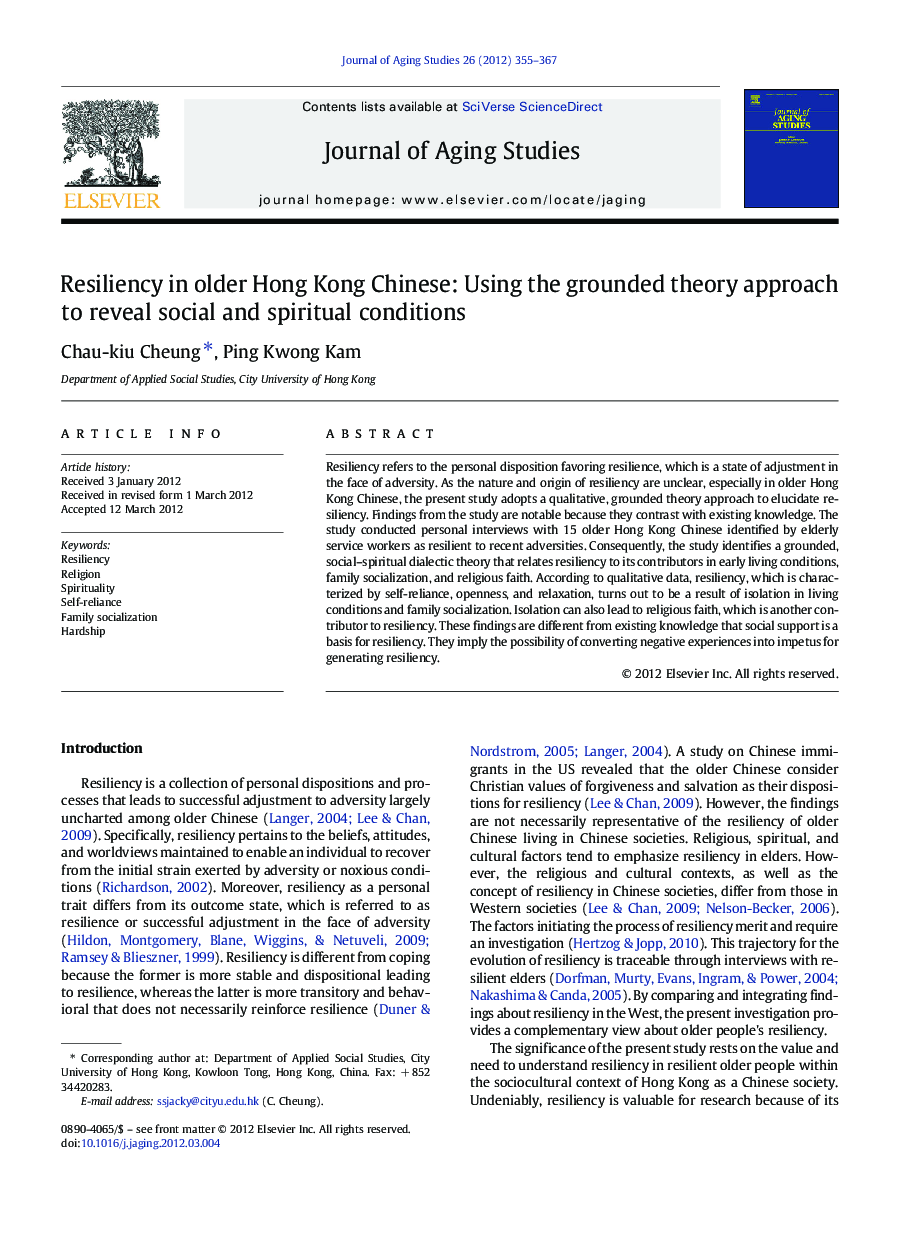| Article ID | Journal | Published Year | Pages | File Type |
|---|---|---|---|---|
| 1081885 | Journal of Aging Studies | 2012 | 13 Pages |
Resiliency refers to the personal disposition favoring resilience, which is a state of adjustment in the face of adversity. As the nature and origin of resiliency are unclear, especially in older Hong Kong Chinese, the present study adopts a qualitative, grounded theory approach to elucidate resiliency. Findings from the study are notable because they contrast with existing knowledge. The study conducted personal interviews with 15 older Hong Kong Chinese identified by elderly service workers as resilient to recent adversities. Consequently, the study identifies a grounded, social–spiritual dialectic theory that relates resiliency to its contributors in early living conditions, family socialization, and religious faith. According to qualitative data, resiliency, which is characterized by self-reliance, openness, and relaxation, turns out to be a result of isolation in living conditions and family socialization. Isolation can also lead to religious faith, which is another contributor to resiliency. These findings are different from existing knowledge that social support is a basis for resiliency. They imply the possibility of converting negative experiences into impetus for generating resiliency.
► A grounded-theory analysis worked out a theory about resiliency in elders. ► Self-reliance, broadmindedness, and relaxation constituted resiliency. ► Resiliency evolved from earlier life, family socialization, and religious faith. ► Earlier hardship is the driver of the evolution of resiliency. ► A dialectic process turns hardship into resiliency.
